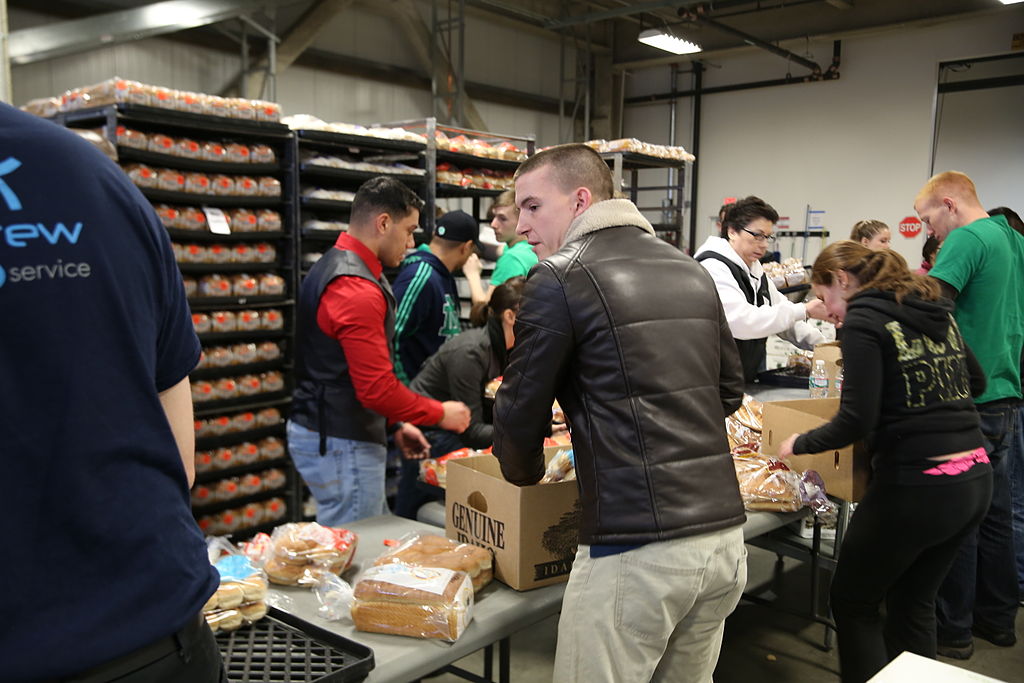
(About the Photo: More than 20 Marines from U.S. Marine Forces Command and the II Marine Expeditionary Force help package bread at the Greater Boston Food Bank in Boston, Massachusetts, March 17, 2015. By Lance Cpl. Calvin Shamoon (https://www.dvidshub.net/image/1828174) [Public domain], via Wikimedia Commons)
Jonathan Tetrault serves as Senior Manager of Community Initiatives at The Greater Boston Food Bank, where they have built a network of 600 partnering agencies for food programs and distribution. “It is great to be a hub and resource for food in our community, but at the end of the day if we don’t have strong partnerships, the food in our warehouse doesn’t do any good. We can’t sit in a corner office of the city and decide how to serve the 190 cities and towns in our service area. We have to empower agencies in our communities to do that,” shares Tretault.
A food bank’s network of partners, like The Greater Boston Food Bank, can range in capacity from a rural, church-based food pantry serving 10-20 people a week to a large urban shelter providing hundreds of meals daily. Partner agencies follow basic partnership agreements with food banks, including how they store and distribute food as well as meet reporting deadlines.
Capacity building for partners can happen in a number of ways. For example, the Capital Area Food Bank in Austin gives approximately $125,000 per fiscal year to partner agencies by way of grants for things like cold food storage. “As food banks realize their vision of providing healthy foods, like more fresh fruits and vegetables, they must equip their partners to accommodate those perishables,” says Heath Ribordy, Agency Relations Manager.
Food banks give partners support well beyond food distribution and storage, though. “We try to strengthen that network of partners by doing grant programs, best practices, growth planning and consulting with them,” says Tetrault in Boston.
Since 2011, Oasis Insight has been serving food bank agency relations and program directors by providing affordable client database, assistance recording and reporting solutions. “We are encouraging our partners to move to things like Oasis Insight, which means moving some of them from the index card and shoebox filing system,” shares Tetrault.
Expanding One Boston Agency Beyond the Basement
One agency in Boston’s metro region was doing quite a lot of food service for their community out of a church basement and was clearly outgrowing that facility. Without an accurate reporting system, the agency could not really tell a story with the numbers they had.
Tetrault shares, “We helped them get the technology needed to start using Oasis Insight. Now that they have good data they have been able to use it and form their story and pitch their need for a new facility to their funders and community. They are now in the process of purchasing their own facility and renovating that space so that they can really expand the service they are offering their clients!”
Want to learn more about how Oasis Insight and Food Banks partner together?
Download our full Case Study: More than Warehouses: Food Banks Build the Capacity of Partnering Agencies.
This study includes interviews with five different Food Bank leaders about their capacity-building work and implementation processes for improving technology, collaboration and reporting.



0 responses so far
There are no comments yet...Start the conversation by filling out the form below.
Leave a Comment